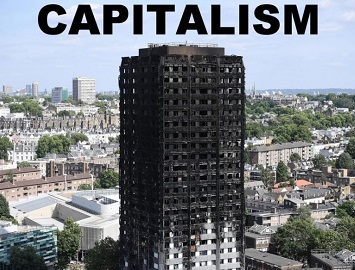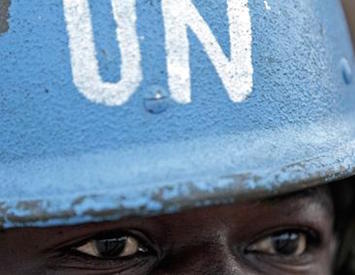ABC Q&A is a weekly case study of corporate and political bias packaged in a spurious guise of balance and journalistic integrity, says Adam Hughes Henry.
IN A SENTENCE the ABCs Q&A reveals that there are almost no depths to which it will not plummet, no stereotyping or jingoism beyond its capability. Please bear in mind that this is our ‘quality’ media, as the commercial networks in this country abandoned long ago any notion of ‘quality’. Q&A is consistent with the false parameters of so called journalistic objectivity and investigation.
These parameters, are highlighted in the book ‘Newspeak’, an in depth study of corporate and political bias in Britain’s media, particularly the sacred BBC and Guardian newspaper, that has enabled the media to become little more than slick propaganda tool on behalf of the political and corporate masters. This was succinctly summed up by Noam Chomsky when he highlights the nature of objectivity in the US in regards to Iraq. If you suggest it was a strategic blunder — that is being objective. If you suggest it was a well-intentioned policy that was poorly executed — well, that can be objective too. If you suggest that the war in Iraq was a war of aggression (the ultimate crime against the peace according to the UN conventions), built on deliberate falsehoods, political spin, and undertaken at the expense of hundreds of thousands of innocent Iraqi civilians — well, that is biased and clearly not objective.
Q&A is on again tonight. Last week’s (Monday, 13 August 2012) program, ‘Big Ideas and Big Society’, is a classic example of the ‘newspeak’ to which we are all routinely subjected. For this examination, I will contain my thoughts to how Q&A handled the question of asylum seekers; this is, perhaps, the new standard in factual falsehoods, mistruths, and media mediocrity that emanates from the ABC. This is saying something, as Q&A, and indeed the ABC in general, becomes more and more like the slick quasi-state sponsored propaganda of the BBC, or the corporate funded liberalism of the Guardian newspaper in the UK.
Within a so-called educated discussion, there was no person able, or willing, to challenge the falsehoods inherent within the alleged panel debate. Tony Jones, as is his style, kept the discussion light on intellect, low on integrity, high on the cheap shots, and with large doses of the so called ‘balance’ required for his journalism to remain professional. Even the presence of philosopher Peter Singer – a thought provoking academic, without question – was reduced to little more than a few rambling soundbites on ways in which he could justify often unpalatable outcomes with his typically cold rationalism.
For example, he easily found a way within his realm of rational reasoning to suggest that locking asylum seekers offshore could be ethical, if more asylum seekers were given opportunities for new lives in Australia. I suspect that given due time and reflection, enough funding, and an audience, there might be nothing that Singer could not find a way to justify, so long as it satisfied his criteria of the ‘greater good’. Twain said of Wagner, ‘his music is better than it sounds’. Singer, of course, must be far more intelligent and empathetic than any of the words he speaks, or writes, appear.
Yet, in the discussion of asylum seekers, where were the advocates, experts, and academics who would have challenged not just the ideology of a panel debate that accepted boat arrivals as cue jumpers that were costing lives, but that in order for them to gain no advantages, they should be locked up. This is factually incorrect propagandist rubbish, and it would take any person less than 5 minutes of research on the internet to confirm this conclusion. Singer certainly did not challenge this premise, nor did Tony Jones, nor did the others, such as Mark Butler (Minister for Mental Health and Ageing and the Minister for Social Inclusion) or Pru Goward, (NSW Minister for Family and Community Services and the Minister for Women), who shamelessly contributed to the debate with their crocodile tears. Only the presence of, Dr Cassandra Goldie, the CEO of the Australian Council of Social Service, attempted to provide some actual factual debate, and indeed, some expertise of the most basic premises of ecomic social justice.
Yet one might ask, where was the philosopher who would challenge Singer’s reasoning, the person who would highlight alternatives to his definitions of ‘ethics’? Instead, there was Phillip Blond, a Tory advisor and Anglican theologian, whose mix of theology, economic advocacy, and sweeping indictments of all other ideas with which he disagrees, did not encourage debate, merely a soapbox for Blond to preach. In his writings, Blond has acknowledged aspects of the role of the Thatcher period in creating those social inequalities, and uneven outcomes, against which he rages, but where was the British political historian, or British economic historian, to remind him that the economic policies of the Thatcherite-Reganite period were a core component of the conservative agenda, that not only acceltared these inequalities, but revelled in the meritocracy that they argued justified their destruction of entire working class communities, and indeed, regions? On Q&A Blond remained totally unchallenged in regards to his historical interpretation of the origins of modern inequality in Great Britain, and more precisely, how to fix them. Now let’s return to the purpose of this article, refugees.
There is no queue for asylum. Yet the opposite was repeatedly inferred on Q&A, without factual challenge. How people arrive, or make their way, to a country that is signatory to the Geneva conventions on refugees is irrelevant. If they rode heroin addicted dolphins to Australian waters, even if these dolphins accepted payment in fish and heroin, and worked for a Bond-like villain who wanted to rule the world while riding a giant octopus, we are obligated under international law, under our treaty obligations, and under Australian law, to take them onshore to be properly assessed.
It was inferred on Q&A that those that come here by boat are rich, second, that should they be accepted as a refugee (and most of them actually are), this comes at the expense of some who has done the right thing and gone to a UNHCR refugee camp. First, socio-economic status has no bearing any any claim to seek asylum; neither money nor education are any protection from being legitimately persecuted, tortured, murdered, raped or killed. This standard was of course never applied to any who sought asylum in the West during the Cold War — they were of course, worthy refugees. The sums paid to get on a boat are generally not astronomical, and this capital might have been raised by selling everything the refuges owned, or by donations from friends and family. You do not need to be rich to get on a boat.
The wait in a UNHCR camp may last up to a decade or beyond, if indeed, any such camp exists in any location accessible to particular groups seeking asylum. If one of these camps can be reached by land, that journey might well be every bit as dangerous as any sea based journey. Conditions in these refugee camps are hardly conducive to anything but a slow death in mind, body and spirit. For a family and for children — a living hell.
Waiting in a UNHCR camp is not first come, first served; the longer you are there has no relationship to when you might be accepted, rejected, get relocated, or go home. It might take years to even complete the assessment process. The criterion for assessment is based on need, and not on any Deli style please take a number process. The fact is, that someone who arrives by boat and is later accepted as a genuine refugee into Australia, does not prevent the Australian government from accepting anyone else from a UNHCR camp.
There is no obligation under the UN regime, or any aspect of international law, where someone who gains asylum onshore, should come at the expense of someone else offshore. This odd quota system has been implemented by the Australians themselves, and might be, so far as I am aware, the only nation on earth who does this. If someone is a genuine refugee, and we find them to be just that, whether they came by boat, or languish in a UNHCR camp, we are actually obligated to take them. The distinction between onshore and offshore is made by the Australian government, not the UN conventions, not UNHCR. Therefore, we choose to implement this potentially cruel distinction ourselves.
Yet, the question has to be asked, why? The numbers of arrivals to Australia, by international standards is low. The numbers we accept hardly excessive. The overwhelming majority turn out to be genuine refugees — imagine that. Further, those who came by boat (and were later granted asylum in Australia), are actually no different, according to the UN conventions, from someone from a UNHCR camp also found also to be genuine. Therefore, it is not the boat person that takes a spot from anyone else, it is the Australian quota system implemented entirely on the authority of the Australian government.
Also accepted in the Q&A debate was that something needed to be done to stop people smugglers, and to stop non-Australian citizens from risking drowning at sea. On the surface, very noble indeed, but scratch this surface and one must become very cynical. Abroad, Australia has narrowed almost every avenue of seeking asylum, where exactly does an Iraqi, Afghan or Tamil go in their own country to seek asylum in Australia. As far as I am aware, you need to be outside of your own country to seek asylum, so where are those locations where Australia assesses and quickly process the claims of such refugees? Are these Australian camps well-funded and well-staffed, are they safe, are they saving lives and preventing people from drowning? We have established no such operations in conjunction with UNHCR. Would this not cost money? Well, yes, but surely far less than offshore dumping in the Asia-Pacific? This has cost the taxpayer billions. When boats have arrived; we have locked the passengers up not for weeks or months, but for years, including children. We have separated families; we have driven fellow human beings to despair, self mutilation and suicide. Now, in the name of preventing people smuggling and so called irresponsible cue jumpers from drowning, we shall do it all over again.
Let’s put this into perspective, tens of thousands of people may die each year of alcohol and tobacco related illnesses, each contributing to ongoing medical treatments, violent crimes, road fatalities, and a range of other related social consequences. The evidence that tobacco and alcohol can be harmful to human health, sometimes even in moderate quantities, is beyond question. Those that engage in this behaviour are under no illusions as to the potential risks. Given that this behaviour can impact on a number of innocent third parties, second hand smoke, asthma, lung cancers, emphysema, domestic violence, road fatalities etc, perhaps we should take action? We could refuse medical treatment to them, or the due process of law; perhaps people who engage in this risky behaviour, even when aware of what might happen, should be locked up and counselled for their irresponsible behaviour. Government does nothing, except of course to gouge enormous tax revenues from activities connected to tobacco and alcohol (used ironically for Health services amongst other things), shown to be, at their most extreme vectors, easily as terrible as the horror of drowning at sea.
If we are serious about preventing deaths, undermining people smuggling, and stopping the boats, might I suggest that we adopt what is already applied to the tobacco and alcohol industry — this is the sort of amoral logic that politicians love. People smuggling is only insanely profitable if it is illegal. If people can afford to purchase airplane tickets, fly them to Australia on government owned planes. The money can be used to offset other costs connected to their period of assessment. Why not provide Australian government shippage that will safely and swiftly provide transportation, and medical treatment, for asylum seekers to Australia for assessment. Why not assess people onshore, and do it quickly. Is our Immigration Department, security services, and police somehow unable to do what other comparable nations routinely do? Are they so incompetent that it takes them years to provide an assessment in line with the UNHCR guidelines? No, they are not. Completely capable, well resourced, and totally able to do so if granted appropriate Government support. It is the political will that is lacking.
Punishing asylum seekers who come by boat polls well with the electorate; in other words, it’s a guaranteed vote winner. Yet, by providing and controlling the means of transportation to Australia, security screening and UNHCR assessment efforts can begin prior to departure, and before refugees even board a plane or ship — saving both lives and millions of dollars on the upkeep of offshore detention centres. Imagine that. Only those who fail their UNHCR assessment, or are found to be a risk, should ever be detained. It would appear that such ideas were unable to be expressed by Q&A, only the false parameters of faux balance. Q&A effectively legitimised a type of debate, not far removed from the repugnant era of the Tampa; it offered hand wringing, and general agreement that something must be done to stop these irresponsible people from dying. This is the Trojan horse of this false debate, the real objective is to stop people from coming to Australia, by boat, Zeppelin or roller blades; to do this, the people who do come, need to be effectively punished, as if they have committed a crime; they must be locked up, separated from mainstream Australia, and allowed to languish in a prison. But before then, they must be vilified, stereotyped, misrepresented, and made voiceless. Last week’s Q&A demonstrated, in the name of ‘balance’ and objectivity, it could do all of these things, and still pretend that it cared about journalistic quality and integrity.
Further Reading:
- ‘Myths and facts about refugees and asylum seekers’, Refugee Council of Australia.
- ‘Debunking the Myths about Asylum Seekers’, Edmund Rice Centre for Justice and Community Education.
- ‘Newspeak in the 21st Century’ by David Edwards and David Cromwell
- ‘A Class Act: Myth of Britain's Classless Society’, by Andrew Adonis and Stephen Pollard
- IA managing editor David Donovan’s series on bias and false balance in ABC Q&A. Links to all the articles may be found at here.









